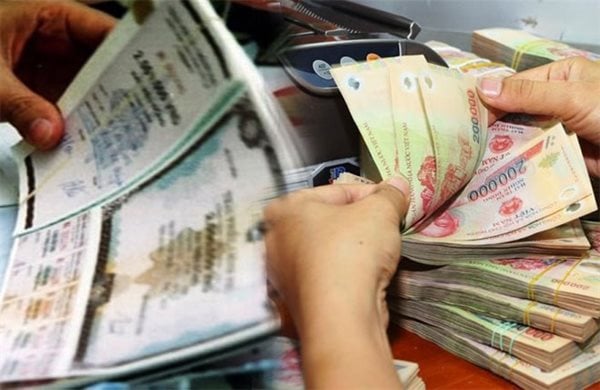In the report on bond interest rates in emerging East Asia, ADB has a separate analysis on Vietnam's government bond and corporate bond markets.
According to ADB, expansion in both the government and corporate bond segments helped Vietnam's overall bond market grow 5.1% quarter-on-quarter to $111.9 billion.

The Asian Development Bank (ADB) said there have been a number of corporate bond defaults in Vietnam, especially in the real estate sector. (Photo: MM)
ADB said corporate bond activity picked up after the government relaxed some bond regulations, leading to a resurgence in issuance this quarter.
Also according to ADB, from March 1 to June 2, 2023, government bond interest rates will decrease for all maturities as the State Bank of Vietnam loosens monetary policy to support economic growth and promote financial stability, especially in the real estate sector.
“There have been a number of defaults amid stress in the corporate bond market in Vietnam, particularly in the real estate sector. The real estate equity index has fallen by about 50% since January 2023,” the ADB report said.
Meanwhile, emerging East Asian bond yields fell in the March-May period amid easing inflationary pressures and slower monetary tightening in the US.
Financial conditions in the region remain broadly stable, even as uncertainty persists over the US Federal Reserve’s monetary stance and potential risks in the banking sectors of major advanced economies.
Stock markets fell and local currencies weakened slightly against the US dollar between March 1 and June 2, while risk premiums fell.
Most central banks in the region have slowed their rate hikes, while banking sector turmoil in the US and Europe has so far had only a limited impact on regional financial markets, said ADB Chief Economist Albert Park.
"However, in the US, concerns about financial stability and inflation are leading to uncertainty about the Federal Reserve's monetary stance. Financial conditions in the region may continue to be affected by this uncertainty," he said.
Emerging East Asia includes the member economies of the Association of Southeast Asian Nations (ASEAN); China; Hong Kong (China) and South Korea.
The region's total local currency bond stock rose 9.1% year-on-year to $23.8 trillion at the end of March.
The increase was largely due to a surge in debt issuance by governments at the start of the year to fund economic recovery programs. Corporate bond issuance has remained moderate, partly due to higher interest rates.
Growth in the emerging East Asia and Japan sustainable bond market slowed to 5.9% quarter-on-quarter, with the total value of sustainable bonds reaching $633.9 billion at the end of March.
The ASEAN+3 region remains the world’s second-largest sustainable bond market, even as it needs more local currency and long-term financing.
Green bonds, local currency financing and private sector issuance dominate the region's sustainable bond issuance.
Source






























![[Photo] National Assembly Chairman attends the seminar "Building and operating an international financial center and recommendations for Vietnam"](https://vphoto.vietnam.vn/thumb/1200x675/vietnam/resource/IMAGE/2025/7/28/76393436936e457db31ec84433289f72)






































































Comment (0)